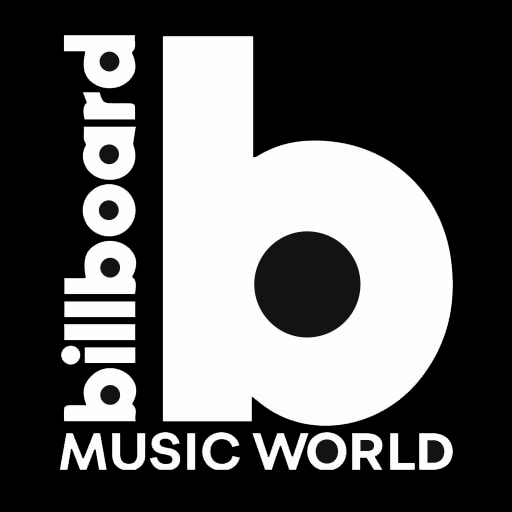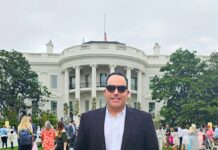1. Can you take us back to the beginning—what first drew you to the double bass, and why jazz?
I was playing electric bass when I enrolled in the Jazz department at Thelma Yellin High School of Arts and quickly realised that the upright bass was creating a lot more opportunities to play. I quickly fell in love with the acoustic sound of the instrument and shifted most of my focus towards the upright bass.
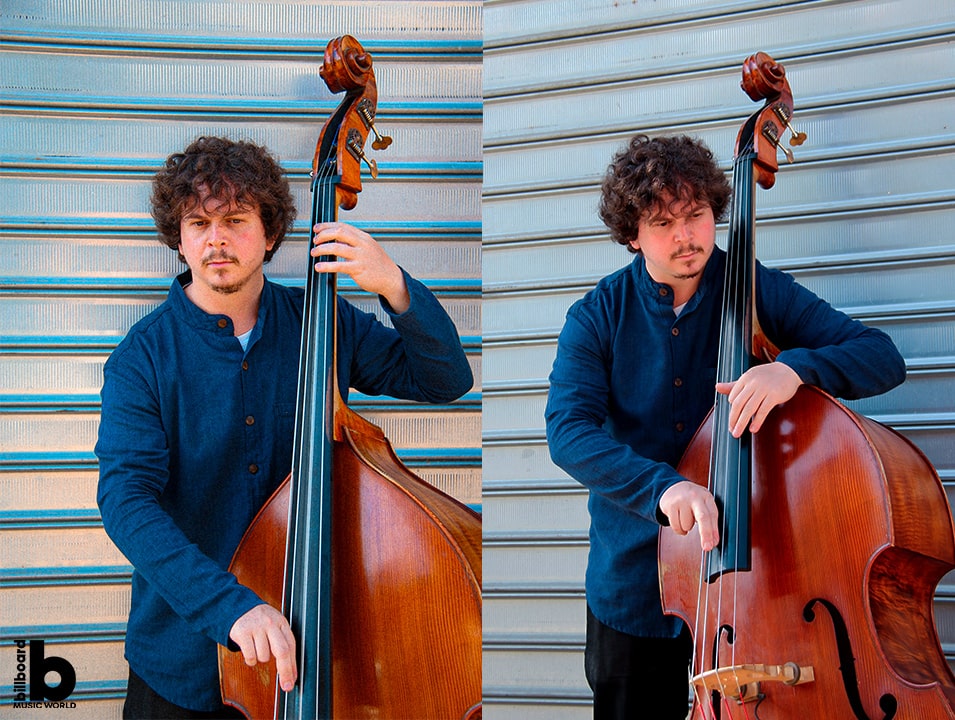
2. The double bass often sits at the heart of a band’s rhythm—how do you personally approach shaping the groove?
I like to start by giving a simple rhythmic pattern that defines the beat in a way that is comfortable to grasp in order to have an agreement with the rest of the band about where the beat is. Then I like to listen to what the other musicians are playing and match that energetically and adjust to where the music goes naturally. I also like to take command and navigate the music if the other members are calling for it.
3. Jazz is known for improvisation. What’s your mindset when you step into an improvisational moment?
I start improvising the moment the music begins. I improvise both when I’m comping and when soloing. I don’t make a very clear distinction between the two. In both, I try to have continuity, to have whatever I play next be connected and a product of what I just played or what someone else in the band played.
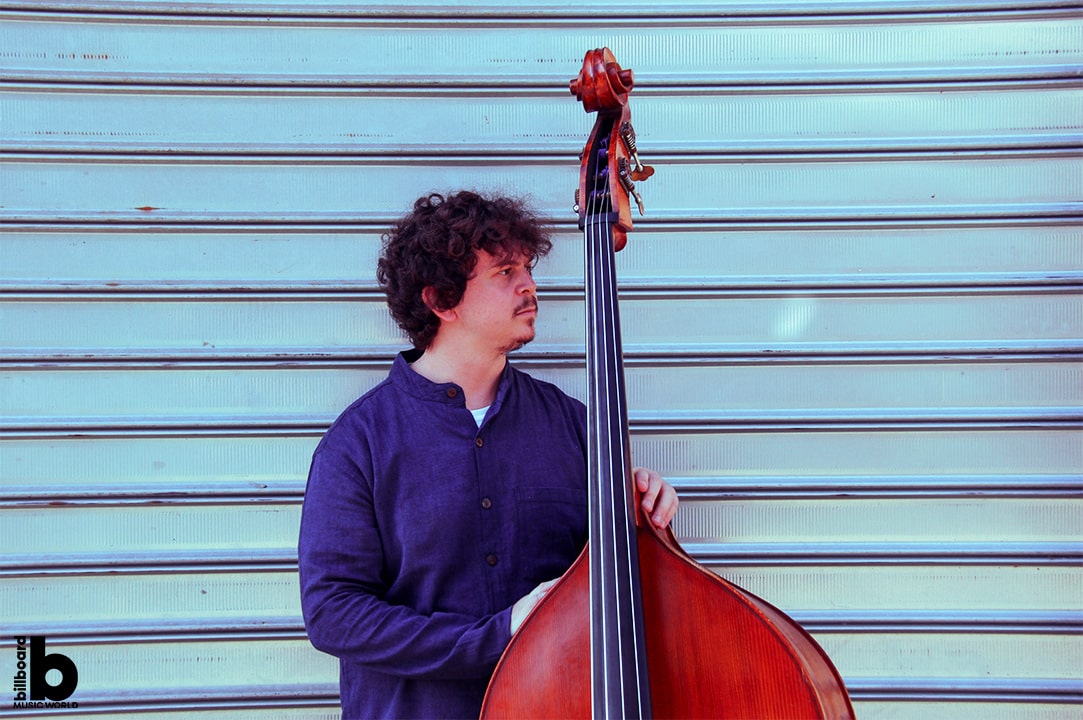
4. Who have been your biggest musical influences, both inside and outside of jazz?
I had the opportunity to study with some of the greatest musicians out there, and I have to say that during my time at Berklee College of Music, Hal Crook has deeply shaped my approach to playing Jazz. My greatest influence regarding playing the instrument and the role of the bass is Barak Mori. His sound, time, and intonation have been a source of inspiration to me for years. There are too many musicians I’m influenced by to list, but I had to pick a few. It would be Paul Chambers, Charlie Parker, Bud Powell, Charlie Haden, John Coltrane, Ornette Coleman, Ron Carter, Keith Jarrett, Lee Konitz, and so many more. I am also very influenced by Johann Sebastian Bach.
5. Many say the double bass has a “voice of its own.” How would you describe the character or personality of your instrument?
I would describe the personality of the double bass as similar to the godfather or the man who pulls the strings behind the scenes. The average listener doesn’t realize the weight and power the bass holds in a band. It generates time and groove, and is responsible for the whole feel of the band. But it also has a lot of room to say harmonically. Simply by changing the root of the chord, whatever the soloist was playing gets an entirely new context. When the bass player plays melodic counterpoint to the soloist, it also just boosts the whole level of the music to new heights. There are many more ways that the bass can affect the music deeply, like using silence, pedal point, and other things the bassist can do that have a tremendous effect.
6. What has been the most memorable performance of your career so far, and why?
The most memorable performance of my career was probably a concert I played with Shai Maestro in Tbilisi, Georgia, with Ofri Nehemya on the drums. It was the concert that I prepared the most for. We played Shai’s arrangement of In a Sentimental Mood by Duke Ellington, and it was the most difficult bass part I had to learn. The rest of the music wasn’t easy either. So I prepared for months for it, and when we finally played, it was an experience I had never had before.
Being on stage with two of the best musicians in the world put me in a zone that was new to me. I was focused deeply, but at the same time, reaching new territories, feeding off the music that Shai and Ofri were playing. It was challenging, but it brought the best out of me.
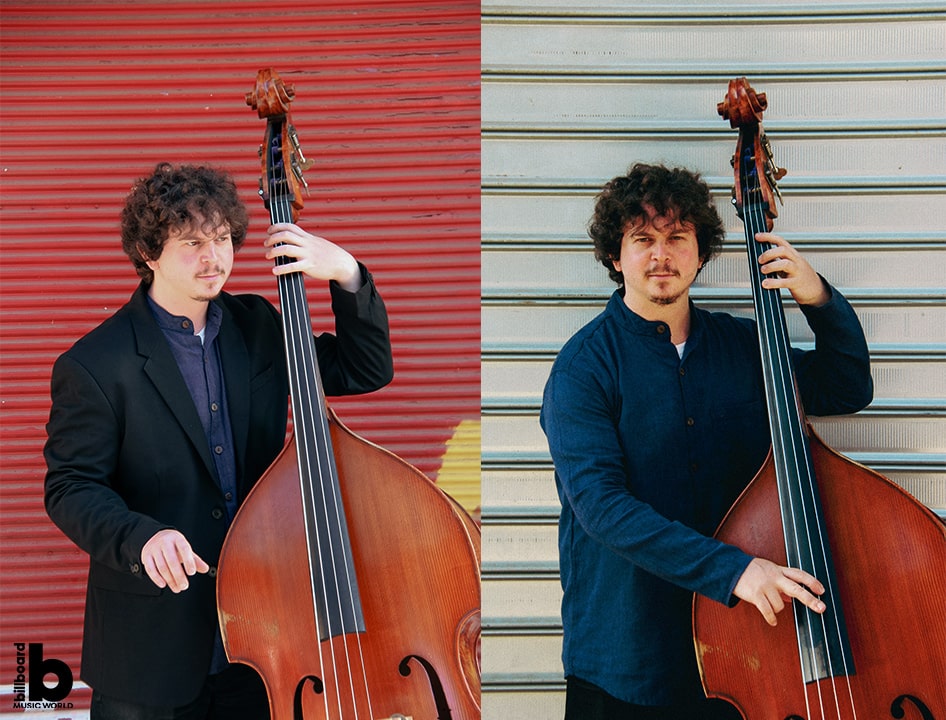
7. Jazz is constantly evolving—where do you see your role as a double bassist in today’s modern jazz landscape?
I believe that in any musical situation, my role is to keep the music alive and flowing. Having the sensitivity to feel the moment it becomes stale and find a way to keep it
8. Do you have a particular practice routine or exercise that has shaped your playing the most?
I think that learning bass concertos really helped me understand the instrument. Listening to different performances of those also taught me a lot. Transcribing also taught me most of what I know about soloing and building bass lines.
9. Collaboration is key in Can you share a story of a special collaboration that pushed your creativity further?
Last January, I went on tour with Nitai Hershkovitz’s trio with him and Amir Bresler. The music that we played was different from what I had experienced playing up to that point. Nitai music is influenced by ambience, and it requires a certain restraint and discipline that were new to me.
Throughout the two-week tour, I learned that when playing so minimally, every subtle change has a profound impact on the music.
10. For many musicians, the double bass is physically How do you balance technique, stamina, and expression?
I try to keep a balance of practice and rest. If I’m in a period of a lot of gigs, I try not to burn out and practice less. If I have a few days off on my schedule, I try to keep my chops up. I also find swimming very helpful in building the back muscles that are used to play the bass. Also, being in water is good for the back.
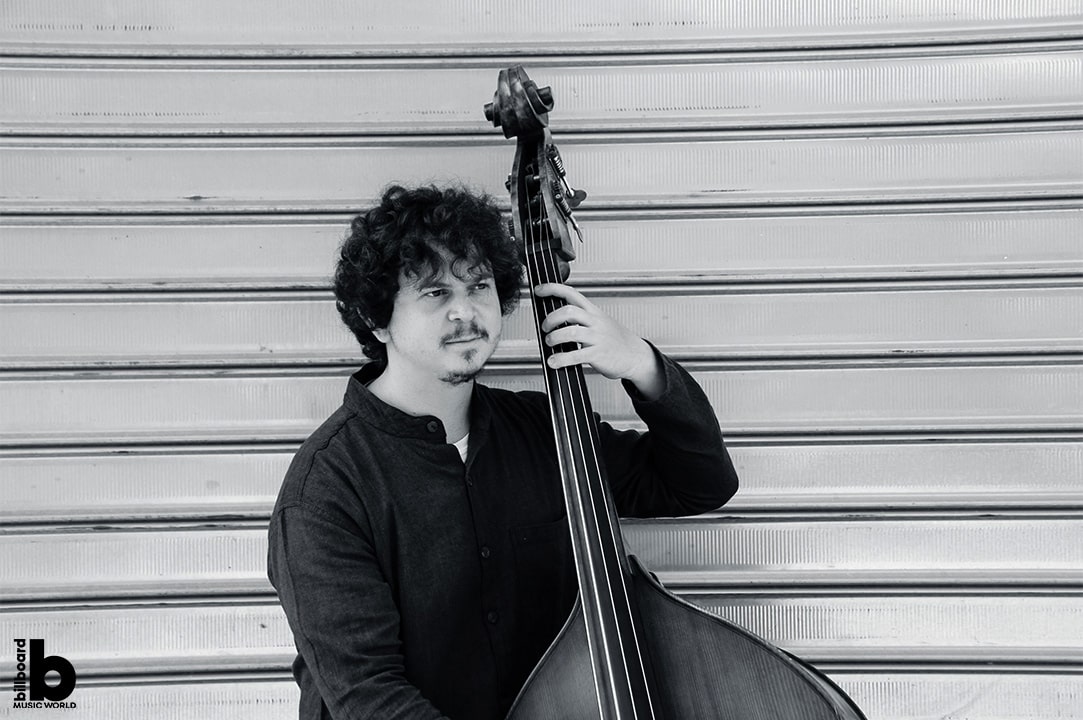
11. What challenges have you faced as a jazz artist, and how have they shaped your journey?
When I studied at Berklee, I began to suffer from tendinitis, which led to a break from the instrument for about 8 months or so. Jazz is a very demanding music, and I find it hard to balance it with. There’s always a tendency to get completely absorbed in it and lose yourself. I think that getting tendinitis taught me that this music cannot last for long without balance.
12. Do you see the double bass more as a rhythm instrument, a melodic instrument, or both?
The bass is part of the rhythm section, but it does create melodies. I think that melody and rhythm are intertwined, and every phrase the bass plays is both rhythmic and melodic.
13. Outside of music, what inspires you creatively and influences the way you play?
Nature, people, interactions, feelings, memories.
14. If you could sit down for a jam session with any jazz legend—past or present—who would it be, and what tune would you want to play?
Hard to pick one, but today I feel like I would love to play with Ornette Coleman.
15. Looking ahead, what projects, performances, or goals excite you the most in your musical journey?
I’m looking forward to moving to NYC to learn from the best musicians in the world and see what my full potential as a musician can be.
Oren Hardy Music Collabourations
- https://music.apple.com/il/album/the-specific-ocean/1675746974?i=1675747228
- https://music.apple.com/il/album/new-old-music/1786152104
- https://music.apple.com/il/album/far-star/1606921883?i=1606922197
- https://music.apple.com/il/album/pnima-feat-yoav-eshed-ofri-nehemya-oren-hardy-single/1542737741
- https://music.apple.com/il/album/tigrinya-lullaby-feat-yoav-eshed-ofri-nehemya-oren/1525092058
- https://music.apple.com/il/album/tenderly-feat-yoav-eshed-ofri-nehemya-oren-hardy-single/1533034641
- https://music.apple.com/il/album/go-find-a-place-of-peace-feat-yoav-eshed-ofri/1536286829
